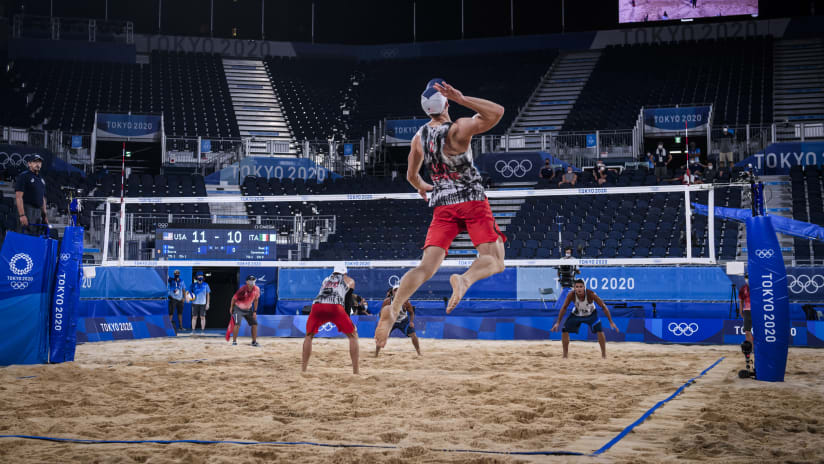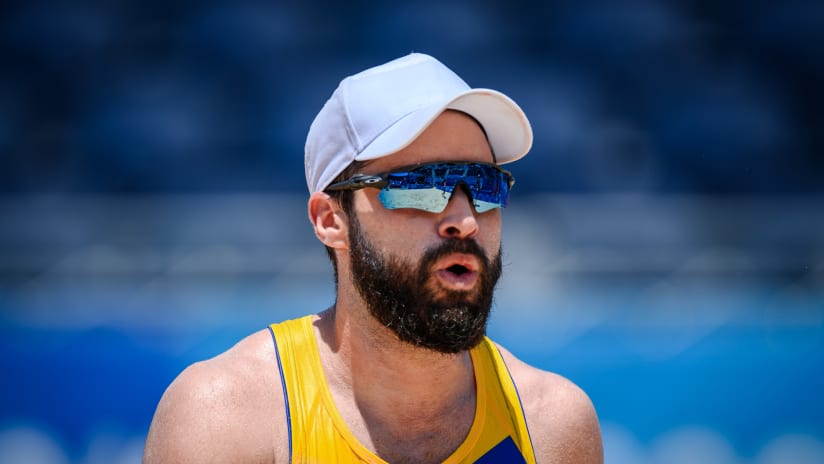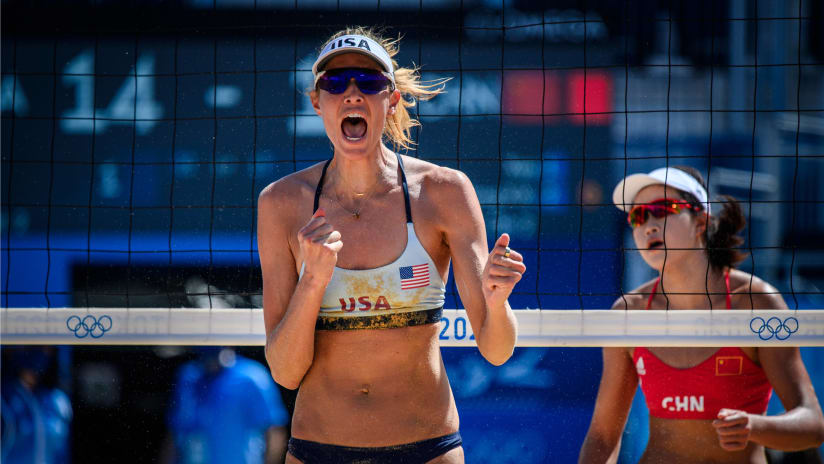In late August of 2018, Jake Gibb sat in the USA Volleyball office, resting on the Monday after the Manhattan Beach Open, talking about the future of the sport and, in particular, a pair of Norwegian players named Anders Mol and Christian Sorum. Kids, Gibb called them then, and they were, just 21 years old apiece.
Olympic Games Tokyo 2020 - Beach Volleyball
The world is changing its strategy against Anders Mol and Christian Sorum
After two years of serving Sorum, teams are beginning to attack Mol
Published 03:26, 27 Jul 2021
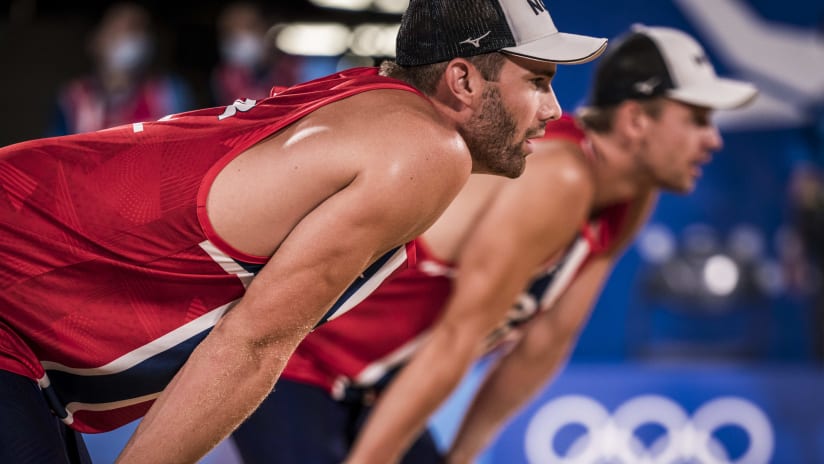
And those kids were winning at a rate beach volleyball hadn’t seen before, with back to back to back victories in Gstaad, Vienna, and Hamburg.
“I’ll tell ya,” Gibb said then, “this off-season, there’s going to be a lot of Norwegian film going across the world.”
And yet, despite all of that Norwegian film being watched all over the world, Mol and Sorum grew impossibly hotter. They took those three straight wins in 2018 and turned them into eight of 13 in 2019. Their prize money ballooned from just north of $10,000 in 2017 to more than a quarter million over the next two seasons.
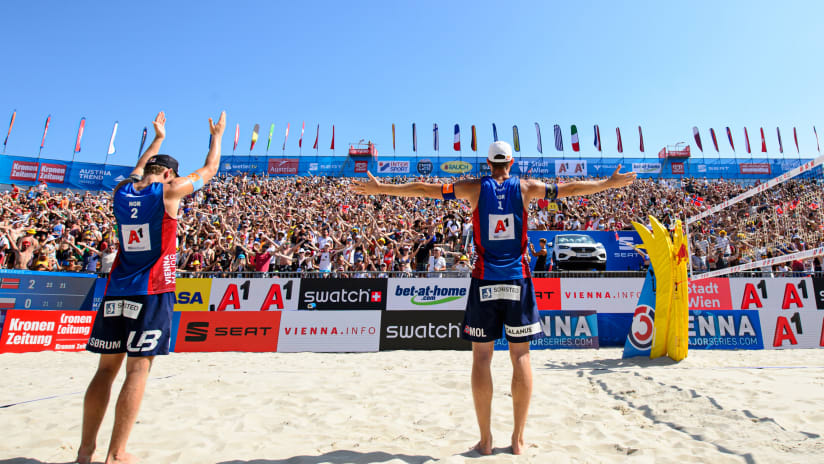
Mol and Sorum
As the wins piled up, only two teams in the world – Russia’s Viacheslav Krasilnikov and Oleg Stoyanovskiy and Germany’s Clemens Wickler and Julius Thole – tweaked the way they approached Norway. Virtually every other team exclusively served Sorum, the 6-foot-4 defender. How can you blame them? Mol is 6-foot-7 and jumps as high as anyone in the world. Twice in a row, in 2018 and 2019, he was voted by his peers as the Best Offensive Player. In those same seasons, he was named Most Outstanding. Yet it was only Germany and Russia who could consistently hang, and sometimes even beat, the indomitable Norwegians. It was only Germany and Russia who dared serve Mol.
In 2021, teams followed suit.
It seems sudden, as if every team decided to collude and attempt the same crazy thing at once, though of course it isn’t sudden at all. Mol and Sorum didn’t play any events in 2020. It gave every federation a full year to wonder the same question: what if we change tactics? What if we take a chance on Mol here and there?
The new trend began in Cancun, as teams sporadically opted to serve Mol. But by the time the schedule moved onto events in Sochi, Ostrava, and Gstaad, virtually the entire world had made the switch: everyone was attacking Mol.
It's the only thing that has come close to working in the last three years.
Heading into Tokyo, Mol and Sorum finished 17th, ninth, and fifth, the worst stretch since early 2018, before they took the world by storm when they were 21 years old. It can be a jarring switch, for a blocker to get served for virtually the first time in his career. It impacts everything, adds an extra element of fatigue to blocking, to serving. It’s as mental of a battle as it is physical.
Thus far in Tokyo, in two matches against Australia’s Christopher McHugh and Damien Scumann and Spain’s Adrian Gavira and Pablo Herrera, the new trend has stuck. Both Australia and Spain attacked mostly Mol from the service line, and both matches were as close as it gets: 21-18, 18-21, 15-13 over Australia, 21-17, 24-22 over Spain.
Victories both, but different than the unquestioned dominance the world became unfairly accustomed to in 2018 and 2019. Now Mol and Sorum must adapt to the world’s adaptation to them, a fascinating chess match on the sport’s biggest stage. Now Mol is constantly on offence, Sorum setting. Now it is Sorum who must take advantage of the rare opportunities presented to him to score.
“It wasn’t easy. It wasn’t pretty. But we did it.” Christian Sorum, after a win over Australia
With two wins, Norway is safely out of pool, regardless of the results of their final match against Russia’s Ilya Leshukov and Konstantin Semenov, who have also won both matches. To expect anyone at this level to continue winning in the fashion Mol and Sorum did in 2018 and 2019 would have been unrealistic. The world is simply too deep, too good. To expect every team to continue playing Norway the same way every match would have been the definition of insanity. They’re still the best team in the world, Norway. Still atop the No. 1 pool in these Olympic Games.
As Gibb said in 2018, no matter who's getting served, “these kids are pretty good.”

